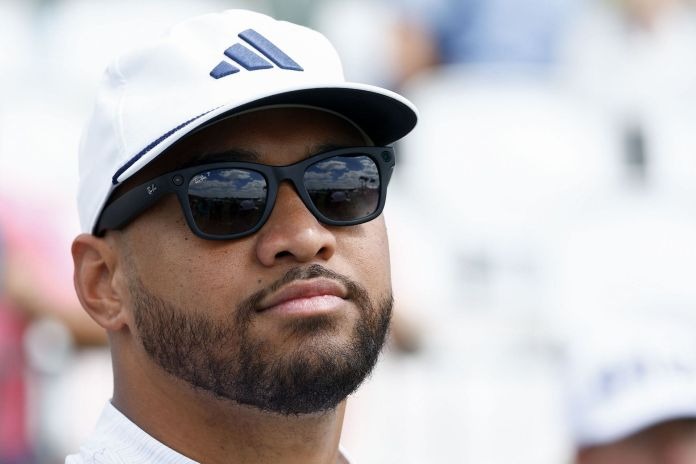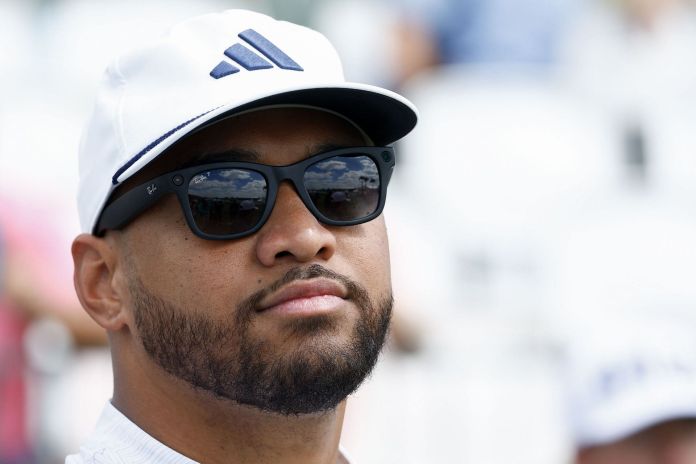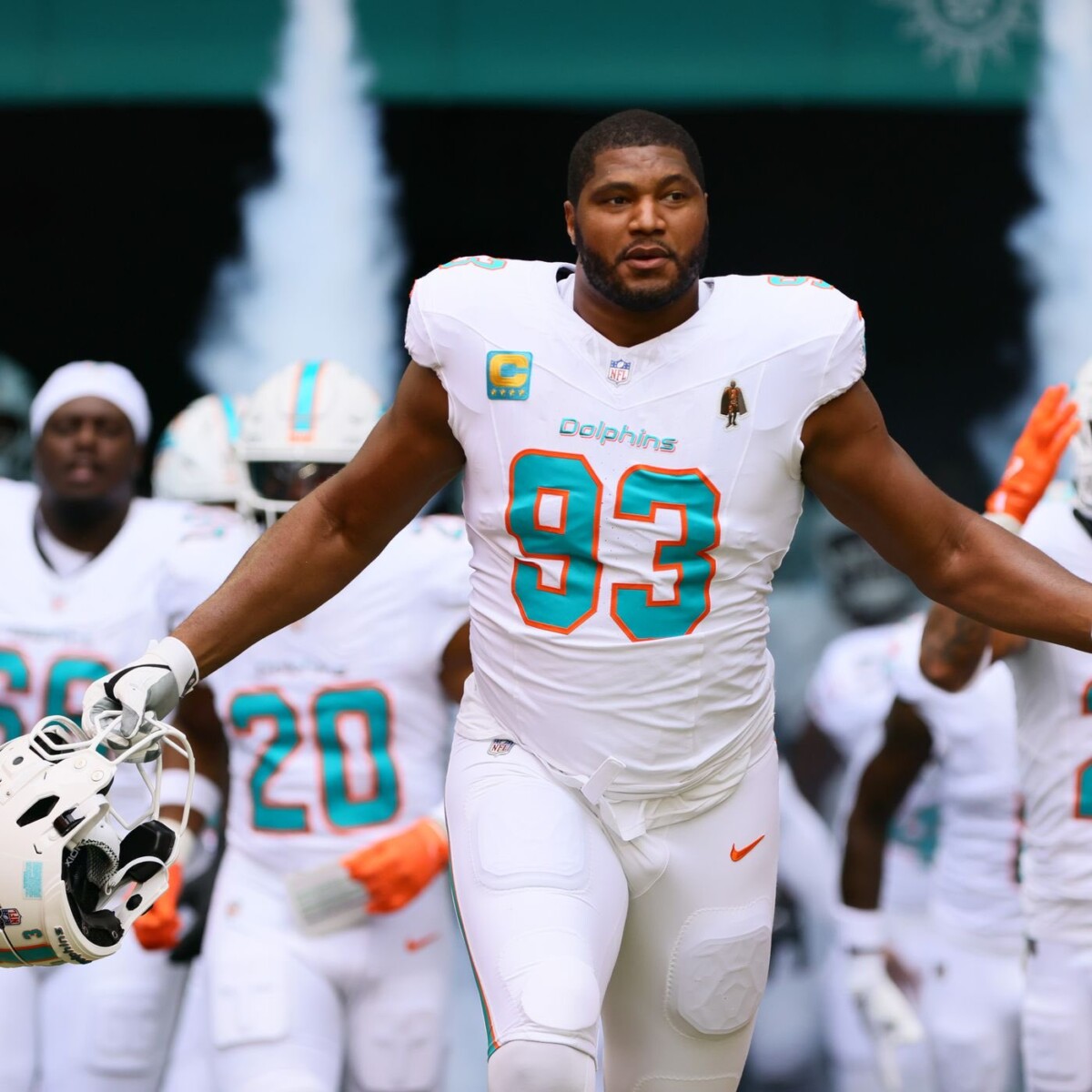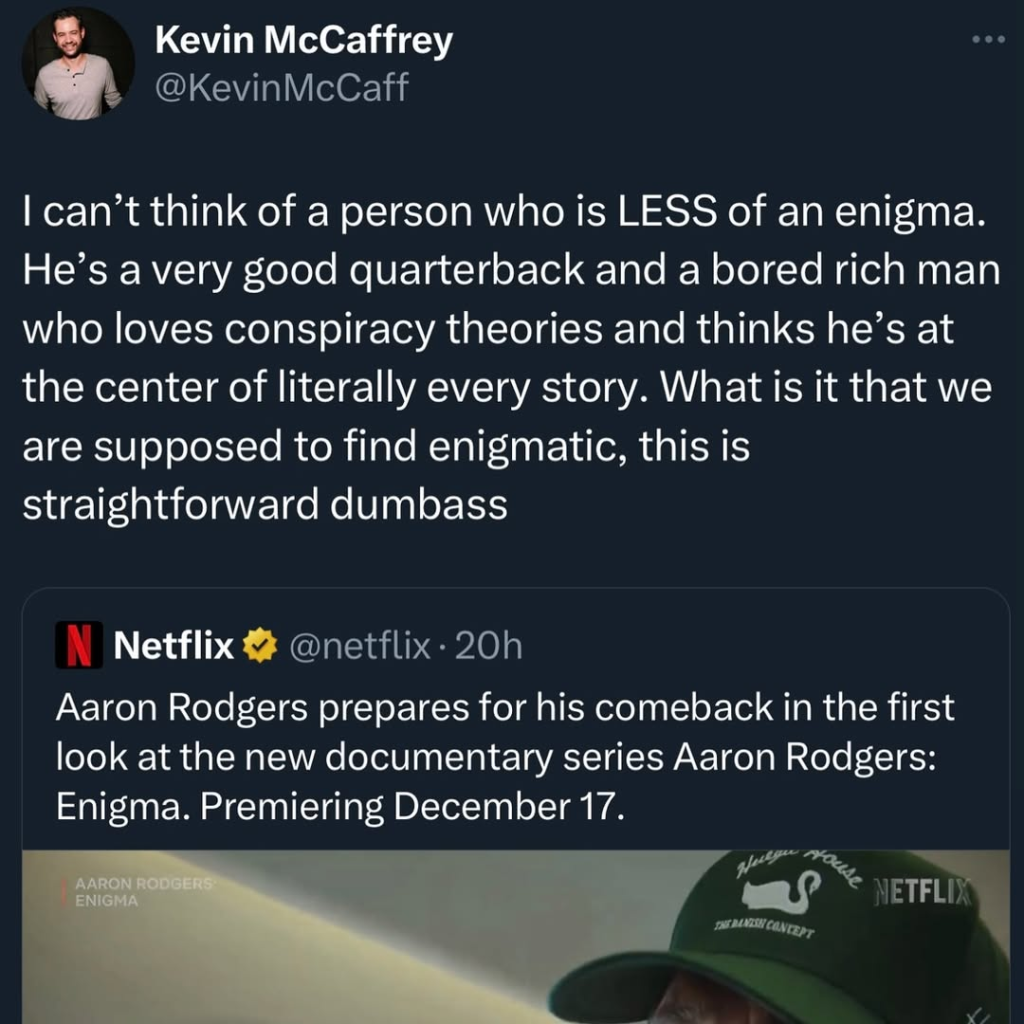
In the vibrant and relentless world of the NFL, the Miami Dolphins find themselves at a critical crossroads with their quarterback, Tua Tagovailoa. As the league shifts and quarterbacks secure their futures with hefty contracts, the Dolphins are weighing their options on whether Tua is indeed their long-term signal-caller.
This decision is not to be taken lightly, as it will shape the franchise’s direction for years to come. The conversation surrounding Tua is filled with mixed reviews, praise for his intangibles, yet doubts linger about his consistency against the NFL’s elite.
Tua Tagovailoa stands uniquely among his 2020 first-round quarterback peers as the only one not yet secured with a contract extension as he enters the final year of his rookie deal. This fact alone underscores the uncertainty surrounding his future with the Miami Dolphins. While others from his draft class have been locked in as franchise quarterbacks, Tua’s position seems somewhat precarious, highlighting the organization’s hesitancy to fully commit.
The debate has caught the attention of sports commentators nationwide, including Colin Cowherd, who has expressed skepticism over handing Tua a top-tier contract akin to those received by Joe Burrow or Justin Herbert. Cowherd’s reservations stem from doubts about Tua’s ability to carry the team deep into the postseason and compete at the highest level consistently. This skepticism reflects a broader sentiment that, while Tua has shown flashes of brilliance, whether he deserves to be paid at the same elite level remains a contentious issue.
Supporters of Tua often cite his impeccable coachability and football intelligence as major assets. His ability to digest playbooks, make quick decisions under pressure, and lead his teammates are qualities that any NFL team would covet in a quarterback.
However, the praises often come with caveats – concerns linger about his performance on the road and against winning teams. These inconsistencies have left the Dolphins in a predicament, appreciating Tua’s potential and leadership but wary of his ability to consistently beat top-tier competition.
The Dolphins find themselves in a delicate balancing act. There’s a clear understanding that giving up on Tua could be a monumental mistake if he reaches his potential elsewhere.
Yet, the team is understandably hesitant to commit a significant portion of their salary cap to a quarterback whose performance has yet to reach an elite, consistent level. This situation encapsulates Miami’s dilemma: how to support and develop Tua into the quarterback they believe he can be while also protecting the franchise’s financial future and competitive aspirations.
As the season progresses, the Dolphins’ management, along with the rest of the NFL, will be watching Tua closely. Every snap, every game, every moment could sway the decision in one direction or another. In a league where fortunes change quickly, the decision on Tua Tagovailoa’s future not only affects the quarterback and the team but could reverberate throughout the NFL.




